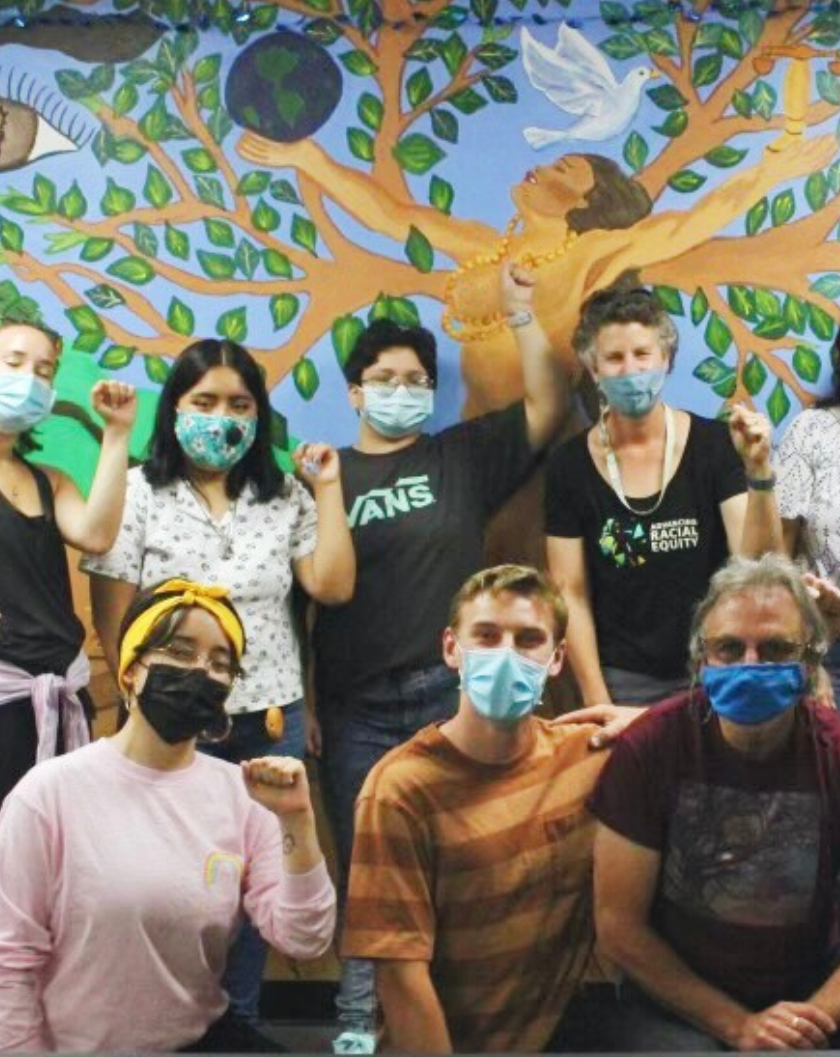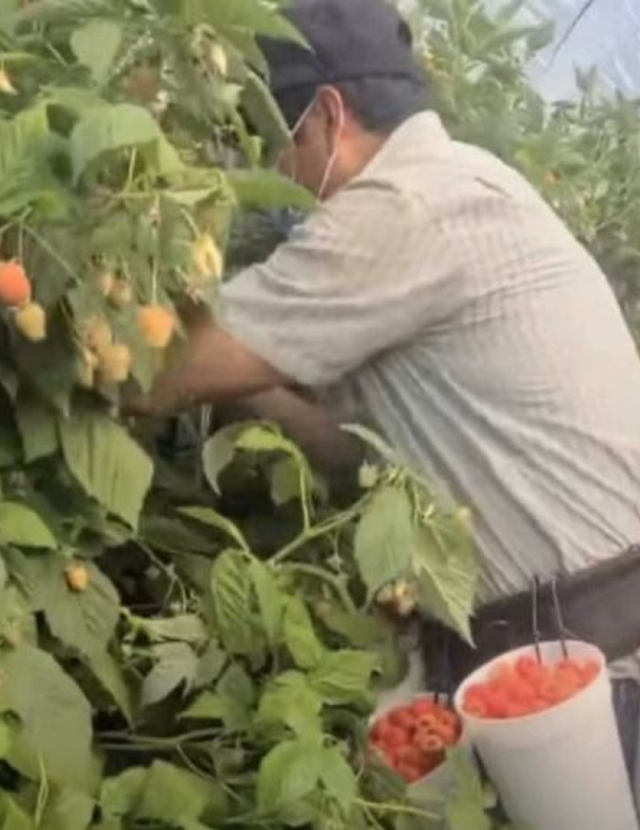
Press Release
Ventura County, CA Launches New Audio Alert System in Mixteco and Zapoteco to Protect Farmworkers from Wildfires
-
Focus Areas
Chronic Disease Prevention, Environmental Health -
Issues
Climate Change, Wildfires & Extreme Heat -
Programs
Achieving Resilient Communities (ARC)
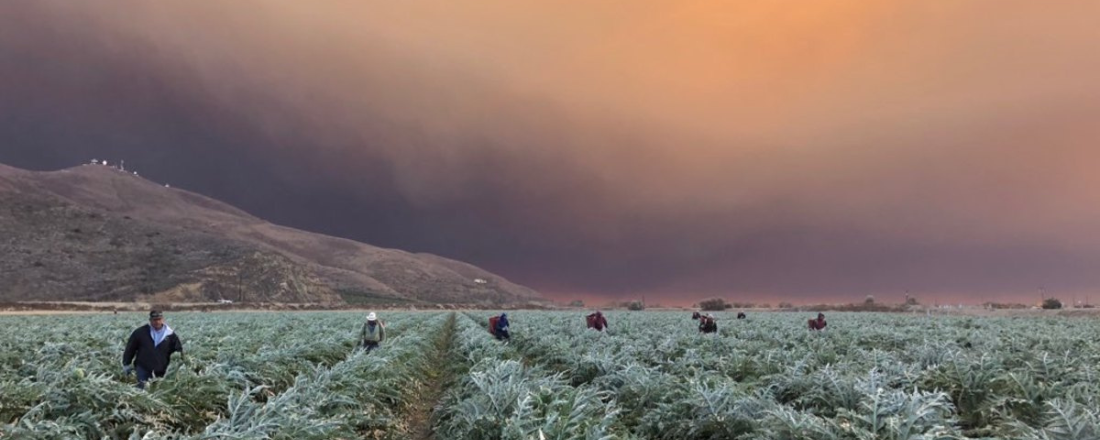
Ventura, CA – As California and much of the Western United States experience an intense wildfire season, Ventura County farmworker advocates and agency partners are improving a current wildfire smoke alert system that now includes audio messages to keep people safer from wildfire smoke and air pollution.
Wildfire smoke exposure is becoming a growing health threat to farmworkers, who must often continue to work in the fields during wildfires and extreme heat events. Wildfire smoke has been linked to a range of health issues, including asthma, heart attacks and chronic heart and lung disease, as well as adverse pregnancy outcomes. Due to climate change, wildfire seasons are becoming longer, more intense and more dangerous.
During a joint press conference today, the Ventura County Air Pollution Control District, Mixteco Indigena Community Organizing Project (MICOP), Líderes Campesinas, Central Coast Alliance United for a Sustainable Economy (CAUSE), and the Public Health Institute’s Achieving Resilient Communities (ARC) project introduced new updates to the emergency alert system, which will now include audio alert messages in Mixteco and Zapoteco that would notify farmworkers and field supervisors when air quality reaches unhealthy levels in Ventura County due to wildfire smoke.
“The enhanced audio emergency alert system builds on an existing model developed by the Ventura County Air Pollution Control District in 2021,” explained Ali Ghasemi, Ventura County Air Pollution Control District Officer. “The existing model notifies farmworkers and field supervisors by text in English and Spanish when air quality deteriorates beyond unhealthy levels due to wildfires. The enhanced version, which will deliver embedded audio links, now features four languages with the addition of Mixteco and Zapoteco to the original alert languages. This further adapts our target public health messaging program to support a particularly susceptible community,” Ghasemi added.
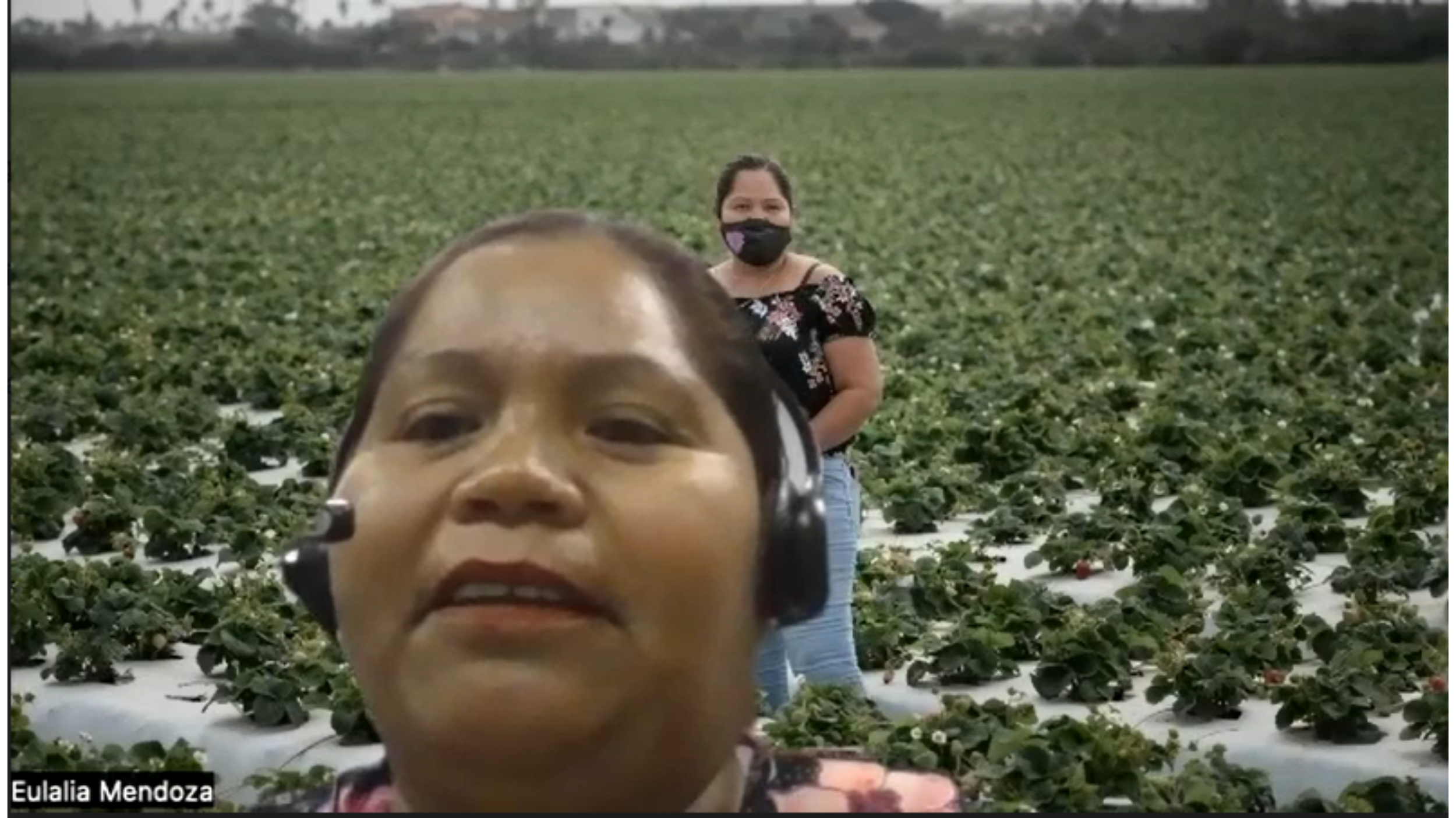
Eulalia Mendoza, farmworker and community advocate with the Mixteco Indigena Community Organizing Project (MICOP), shares how the 2017 Thomas Fire prompted her to advocate for the new Ventura County audio alert system. Note: Video footage is available for media use. Press can edit and embed with proper attribution to PHI. Contact us to access the original footage.
In 2017, the Thomas Fire severely affected Ventura County communities and at the time was the largest wildfire event in California’s history. Spanish speaking and indigenous community members lacked critical information during the fire because emergency warnings were at first only available in English. Ventura County has more than 40,000 farmworkers and about 1 in 3 speak Mixteco, Zapoteco or another indigenous language.
The new audio emergency alert system for wildfires grew out of the lived experiences from the Thomas Fires for the local farmworkers and farmworker advocates. During the Thomas Fire, many farmworkers worked in the fields when it was unsafe, and without protective gear. As a result, many farmworkers and community-based organizations advocated for these protections to be in place.
Funding from the California Department of Public Health allowed for the development of the FRESAS project, which brought together multiple partners to develop the audio alert system for farmworkers in Ventura County that’s linguistically and culturally accessible. Partners on the FRESAS project include: Mixteco Indigena Community Organizing Project (MICOP), Líderes Campesinas, Central Coast Alliance United for a Sustainable Economy (CAUSE), and the Public Health Institute’s Achieving Resilient Communities (ARC) project. The Ventura County Air Pollution Control District led the development of the new text and audio alert system for farmworkers.
“We are very grateful that the alert system for agricultural workers in our mother tongues has been approved,” expressed Erbino Mateo, ARC Farmworker Advisory Committee Member. This change is important because many do not fully understand Spanish or English and we need to understand this information in our mother tongue. We need to know what kind of air we are breathing, especially when there is smoke and fire somewhere,” Mateo added.
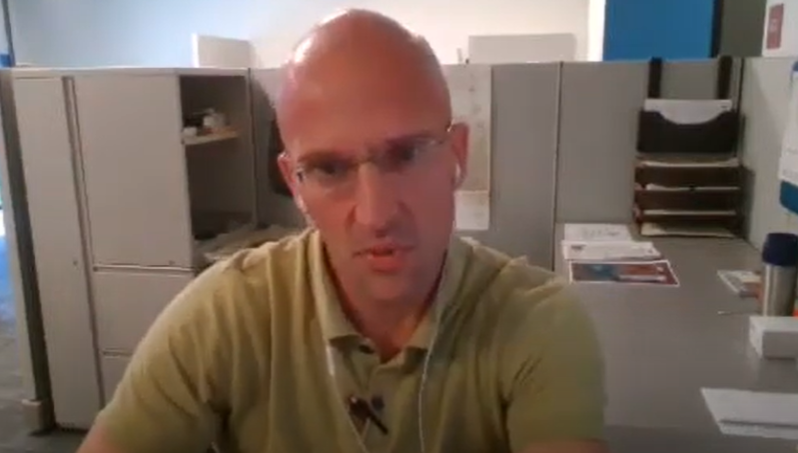
Tommy Winning, meteorologist at the Ventura County Air Pollution Control District, explains Ventura County’s new audio alert system and shares how farmworkers can use it to protect themselves during wildfire events. Note: Video footage is available for media use. Press can edit and embed with proper attribution to PHI. Contact us to access the original footage.

How the Alert System Works
• Farmworkers, including employers and field supervisors, can sign up to receive text or audio alerts by texting SMOKE for alerts in English and HUMO for alerts in Spanish/Mixteco/Zapoteco to 855-522-0034. They can subscribe at no cost. Phone provider charges may apply.
• Once signed up, they will receive text or link to an audio message with air quality notifications in real-time when the Air Quality Index (AQI) reaches 151 (unhealthy), where CalOSHA requires employers to provide N95 masks to outdoor workers for voluntary use. Subscribers for the smoke alert system will also receive notifications for when the AQI exceeds 500 (hazardous), which is when outdoor workers are required to wear N95 masks at all times.
• When a subscriber receives a wildfire smoke alert, they will be informed in real-time about their safety needs (i.e. the need to wear an N95 mask, not being outdoors, etc.). Farmworkers who may not have access to a phone, should receive alerts/communication from their field supervisors/employers.
Climate-related disasters, the 2017 Thomas Fire and the COVID-19 pandemic have highlighted the need for improved local and state public health emergency preparedness policies. Innovations like audio alert systems in indigenous languages have been shown to be essential in addressing the unique needs of farmworkers.
“Ventura County’s wildfire smoke audio alert system is a model that could be replicated in other parts of the state and even throughout the nation, to protect the health of farmworkers by increasing their access to critical emergency response information,” said Dr. Gina Solomon, Director of the Public Health Institute’s Achieving Resilient Communities program. “Community-led alert systems that provide farmworkers with safety information in multiple languages could also be used for a wide range of climate and health issues —extreme heat, COVID and other emerging crises,” Solomon added.
Further efforts also need to be in place to protect farmworkers during wildfire events. Partners envision the audio alert model for Ventura County as an opportunity for the State of California and other jurisdictions to consider as they define and develop plans for disaster preparedness in multiple languages.

Dr. Gina Solomon, former director of PHI’s Achieving Resilient Communities (ARC), discusses the need for solutions that will protect farmworkers during wildfires and extreme heat, including providing paid days off when it’s not safe to work outside. Note: Video footage is available for media use. Press can edit and embed with proper attribution to PHI. Contact us to access the original footage.
Work With Us
You change the world. We do the rest. Explore fiscal sponsorship at PHI.
Support Us
Together, we can accelerate our response to public health’s most critical issues.
Find Employment
Begin your career at the Public Health Institute.
